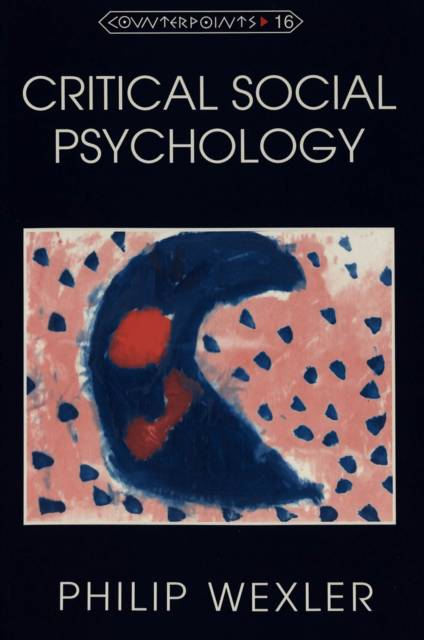
- Afhalen na 1 uur in een winkel met voorraad
- Gratis thuislevering in België vanaf € 30
- Ruim aanbod met 7 miljoen producten
- Afhalen na 1 uur in een winkel met voorraad
- Gratis thuislevering in België vanaf € 30
- Ruim aanbod met 7 miljoen producten
Zoeken
€ 32,45
+ 64 punten
Omschrijving
Academic practitioners of social psychology have traditionally adopted a liberal position against the extremes of capitalist and socialist ideology. But recently this middle position has become extremely precarious, and the fundamental crisis in social psychology can no longer be ignored. The purpose of this book is to repair the severed connection between social psychology, the culture of everyday life and the structure of society, along the lines of the Frankfurt School's critique of knowledge.
Philip Wexler places both conventional social psychology and the emergence of an alternative in their historical context, revealing the ideological character of conventional social psychology and emphasizing the social basis of an alternative. He describes the foundations of this alternative, critical psychology, by analysis of theory and research on questions of self, social interaction and intimate or personal relations. This analysis proceeds through an historical and conceptual critique of concepts and paradigms, toward their social-cultural basis, and then back again to an alternative paradigm. In presenting a coherent theoretical social psychology, and by introducing Marxist categories such as commodity fetishism, exploitation and alienation, the author enables social psychologists to overcome their cultural isolation.
Philip Wexler places both conventional social psychology and the emergence of an alternative in their historical context, revealing the ideological character of conventional social psychology and emphasizing the social basis of an alternative. He describes the foundations of this alternative, critical psychology, by analysis of theory and research on questions of self, social interaction and intimate or personal relations. This analysis proceeds through an historical and conceptual critique of concepts and paradigms, toward their social-cultural basis, and then back again to an alternative paradigm. In presenting a coherent theoretical social psychology, and by introducing Marxist categories such as commodity fetishism, exploitation and alienation, the author enables social psychologists to overcome their cultural isolation.
Specificaties
Betrokkenen
- Auteur(s):
- Uitgeverij:
Inhoud
- Aantal bladzijden:
- 190
- Taal:
- Duits
- Reeks:
- Reeksnummer:
- nr. 16
Eigenschappen
- Productcode (EAN):
- 9780820431482
- Verschijningsdatum:
- 1/08/1996
- Uitvoering:
- Paperback
- Formaat:
- Trade paperback (VS)
- Afmetingen:
- 153 mm x 231 mm
- Gewicht:
- 319 g

Alleen bij Standaard Boekhandel
+ 64 punten op je klantenkaart van Standaard Boekhandel
Beoordelingen
We publiceren alleen reviews die voldoen aan de voorwaarden voor reviews. Bekijk onze voorwaarden voor reviews.











